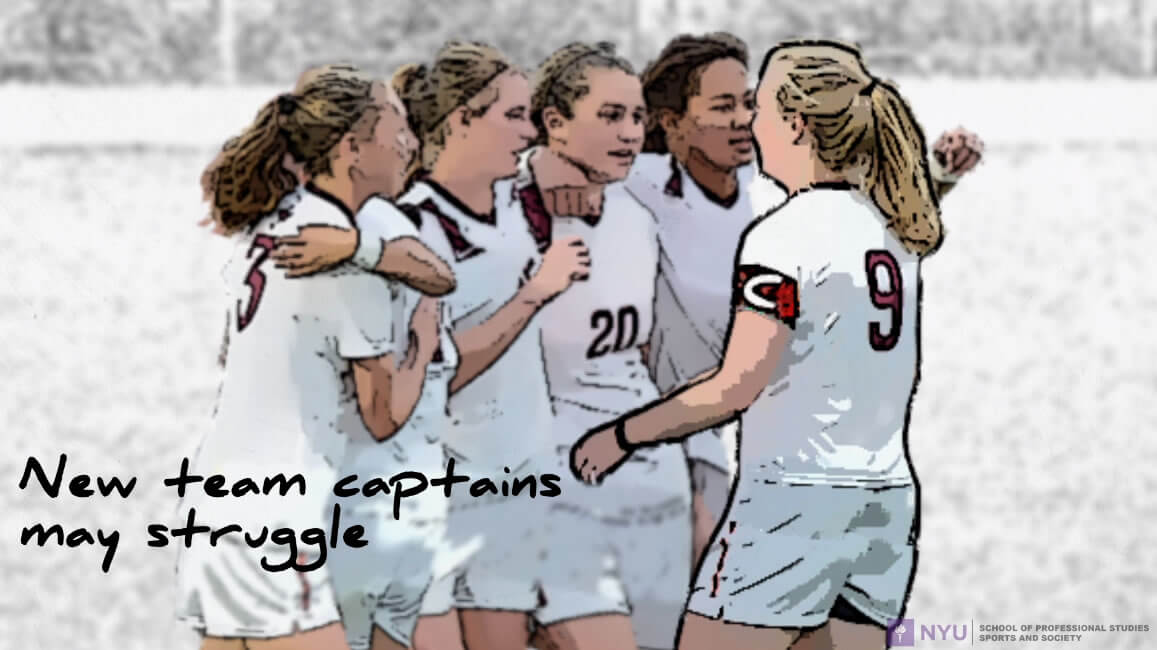Written and presented by: Garland Allen
Congratulations, you now hold a pretty exclusive title. Team Captain.
Like most new team captains, you will discover that many challenges and expectations come with that title.
Unfortunately, your title doesn’t come with directions to meet those challenges. So it is understandable that you may struggle trying to figure out how to deal with some of the more common situations that most team captains will face.
For Example:
Your teammates won’t listen to you.
You see a team member drinking at a party, it’s even worse, it’s a good friend.
There is a team tradition of hazing new team members. Do you try to stop it, join in or ignore it?
If you don’t have a clear and decisive response to any or all of these examples, then you probably lack the necessary leadership training and experience to respond with confidence. Relax. Don’t panic! Even if you lack training and experience, there are some actions that you can take to help you manage some of the more common dilemmas that you will face as a team captain, including the examples just mentioned.
So let’s get started.
- Establish a positive and respectful relationship with all team members. Sounds simple! But many captains fail at this because they try to be a boss instead of being a supportive teammate.
- Work with teammates to set mutual team goals that complement the coach’s team goals.
- Respectfully express your differences and offer constructive criticism to your fellow captains, but do it in private away from the team.
- Encourage teammates to express their opinions and respect their ideas. They will return the favor.
- Treat all teammates the same. That includes friends, starters, non-starters and those injured.
- Don’t gossip about team members. You will risk losing everyone’s respect and trust.
- Send a strong message that hazing and bullying are never acceptable.
Establish a respectful relationship with your coach.
- Meet with your coach before the season starts and continue to meet on a regular basis throughout the season.
- If there is a captain’s handbook or a set of guidelines for team captains, ask for a copy and read it.
- Determine what is your expected role and responsibility as your team’s captain.
- Discuss the coach’s team goals so you can reinforce them with your teammates.
- If something comes up that you are uncomfortable sharing with your coach, speak to your school’s Athletic Director.
- Don’t be shy, ask your coach to make sure that your teammates understand what your role is and the protocol that everyone, including you, is expected to follow when addressing concerns or issues that impact the team or team members.
When speaking to the media, you represent your teammates, coach and school.
- So think through every question you are asked before answering. Never put down or blame your coach or fellow teammates for a loss or a poor performance.
- If you feel uncomfortable answering a question, Just respond that “I rather not comment on that question at this time.”
- Never agree to a telephone or personal interview unless your coach or a school official has made prior arrangements for you.
- Treat people outside of your team with respect. That includes students in your school, captains on other teams, game officials and fans.
Finally, There is no specific style or personally that makes a person a good captain.
If you are a quiet nonverbal person, then lead by example. Work hard in practices and games, be supportive of your teammates and take ownership for your own mistakes or shortcomings.
If you are a verbal person, then be a vocal leader. Use your voice to motivate, encourage and support your teammates.
Remember: You were either selected by your coach or elected by your teammates to represent them, your school and your community because of who you already are. So don’t change. Just be the best version of yourself.
Good Luck!
